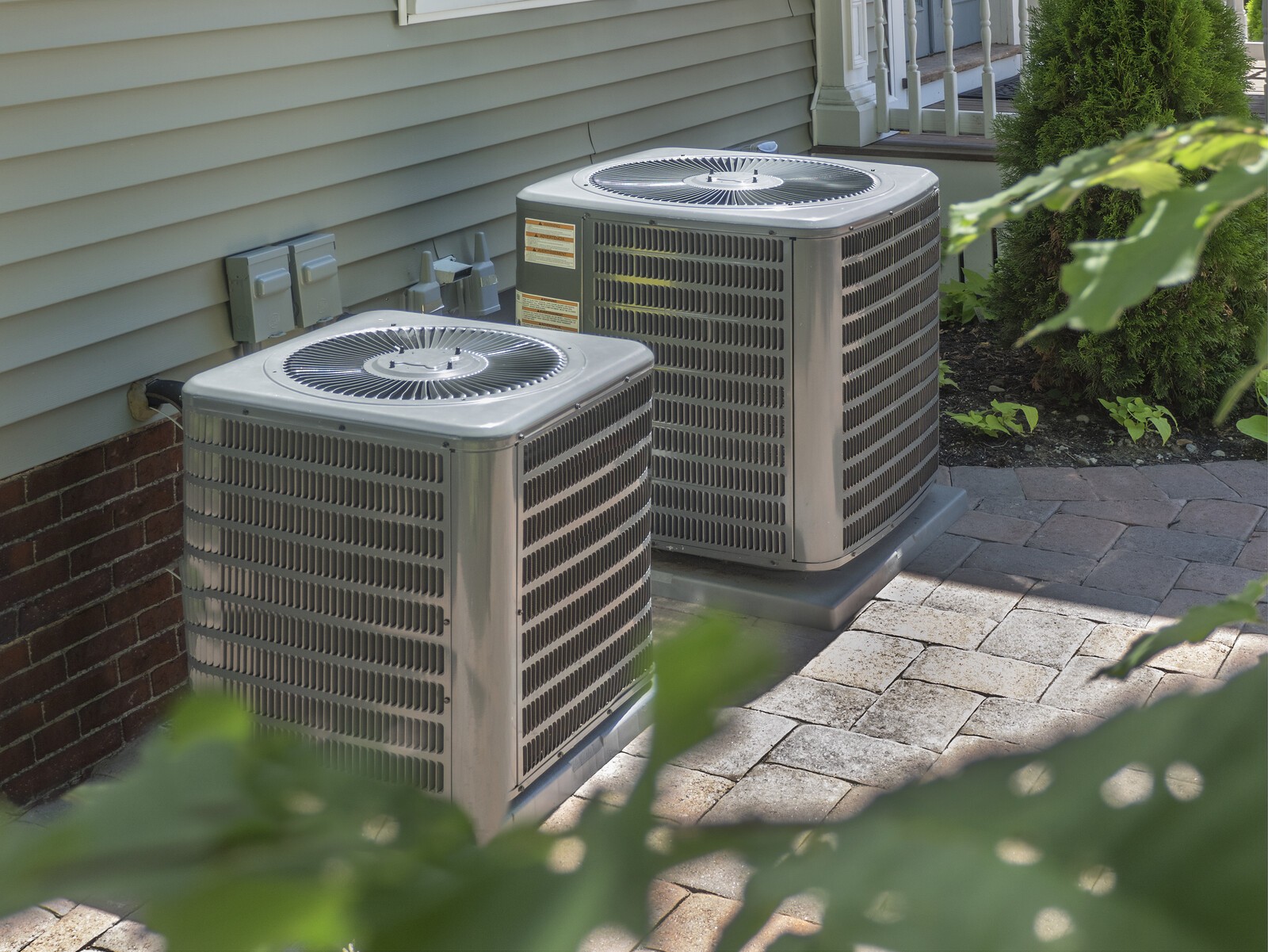
Choosing the right cooling system for your home is important for maintaining comfort, reducing energy costs, and minimizing environmental impact. For homeowners in Toronto and the Greater Toronto Area (GTA), understanding the differences between an air conditioner or heat pump can help in making an informed decision that suits your lifestyle and budget.
An air conditioner is typically used for cooling during the hot summer months, providing effective temperature control and comfort. In contrast, a heat pump offers the versatility of both heating and cooling, making it an efficient year-round solution. Each system has its own set of benefits and considerations, which makes the decision process complex but important.
With so many options available on the market, it's essential to consider various factors such as climate, energy efficiency, installation costs, and long-term savings to find the best solution for your specific needs.
Air Conditioner or Heat Pump?
Understanding the basic functions and types of air conditioners and heat pumps is the first step in making an informed decision about which system is best for your home.
What is an Air Conditioner?
An air conditioner is a system designed to cool your home by removing heat from the indoor air and releasing it outside. It works by using a refrigerant that cycles between the indoor and outdoor units, absorbing heat from the indoor air and expelling it outside, resulting in a cooler indoor environment.
Types of air conditioner available:
- Central Air Conditioners: These systems cool the entire home through a network of ducts. They are ideal for larger homes and provide consistent cooling throughout the space.
- Window Units: These are self-contained systems installed in a window. They are suitable for cooling single rooms or small spaces.
- Portable Air Conditioners: These units can be moved from room to room and are an excellent option for spot cooling in specific areas.
- Ductless Mini-Split Systems: Ductless systems consist of an outdoor unit and one or more indoor units. They are ideal for homes without ductwork and allow for individual room control.
What is a Heat Pump?
A heat pump is a versatile system that can both heat and cool your home. It operates by transferring heat between the indoors and outdoors using a refrigerant cycle. In the cooling mode, it functions similarly to an air conditioner by extracting heat from the indoor air and releasing it outside.
How heat pumps work for both heating and cooling
- Cooling Mode: During the summer, the heat pump extracts heat from the indoor air and expels it outside, effectively cooling your home.
- Heating Mode: In the winter, the heat pump reverses the process, extracting heat from the outside air (even in cold temperatures) and bringing it indoors. This dual functionality makes heat pumps an efficient option for year-round climate control.
Benefits of Air Conditioners
By providing efficient cooling, lower initial costs, and ease of installation, air conditioners remain a popular choice for homeowners seeking reliable and affordable comfort during the summer months.
Efficient Cooling During Hot Months
Air conditioners are specifically designed to provide powerful cooling, making them highly effective during the hot summer months. They can quickly lower the indoor temperature, ensuring a comfortable living environment even on the hottest days. Modern air conditioners come with advanced features such as variable speed compressors and smart thermostats, which help maintain a consistent temperature while maximizing energy efficiency.
Lower Initial Cost
One of the significant advantages of air conditioners is their lower initial cost compared to heat pumps. Whether you opt for a central air system, window unit, or portable air conditioner, the upfront investment is generally more affordable. This makes air conditioners an attractive option for homeowners looking for an effective cooling solution without a substantial financial commitment.
Widely Available and Easy to Install
Air conditioners are widely available in various models and sizes to suit different needs and budgets. This widespread availability ensures that you can find a unit that fits your specific requirements, whether you need to cool a single room or an entire house. Additionally, air conditioners are relatively easy to install. Window units and portable air conditioners can be set up with minimal effort, while central air systems, although requiring professional installation, are a common choice with many experienced technicians available to perform the job.
Benefits of Heat Pumps
By offering dual functionality, energy efficiency, and potential cost savings, heat pumps are an excellent choice for homeowners looking to maintain a comfortable and environmentally friendly home throughout the year.
Dual Function: Heating and Cooling
One of the standout benefits of heat pumps is their ability to provide both heating and cooling, making them a versatile solution for year-round comfort. In the summer, a heat pump works like an air conditioner, extracting heat from your home and expelling it outside. During the winter, the process is reversed, with the heat pump extracting heat from the outside air and bringing it indoors. This dual functionality eliminates the need for separate heating and cooling systems, simplifying maintenance and potentially reducing overall costs.
Energy Efficiency and Environmental Benefits
Heat pumps are known for their exceptional energy efficiency, particularly in moderate climates. They use electricity to transfer heat rather than generate it, which makes them more efficient than traditional heating systems like furnaces and electric heaters. This efficiency translates to lower energy consumption, reducing your carbon footprint and contributing to a greener environment. Additionally, many modern heat pumps come with advanced features like variable speed compressors and smart thermostats, which optimize performance and further enhance energy savings.
Potential for Lower Energy Bills
Due to their high efficiency, heat pumps can lead to significant savings on your energy bills. While the initial cost of installing a heat pump may be higher than that of an air conditioner, the long-term savings on heating and cooling expenses can offset this investment. Heat pumps operate more efficiently than many conventional heating systems, which can result in lower monthly utility bills. Furthermore, some regions offer financial incentives or rebates for installing energy-efficient systems, which can help reduce the upfront cost and improve the return on investment.
Factors to Consider When Choosing
Considering factors such as climate, installation, energy efficiency, environmental impact, and costs, homeowners can make an informed decision about whether an air conditioner or heat pump is the best choice for their needs/
Climate and Weather
- Suitability of Air Conditioners in Hot Climates
Air conditioners are highly effective in regions with hot and humid summers. They are specifically designed to handle high temperatures and can provide consistent and powerful cooling. For homeowners in Toronto and the GTA, where summers can be quite warm, an air conditioner can quickly lower indoor temperatures, ensuring comfort during peak heat periods. - Effectiveness of Heat Pumps in Varying Climates
Heat pumps are versatile systems that can perform efficiently in a range of climates. In moderate climates, they are highly efficient at both heating and cooling. However, their performance can be less efficient in extremely cold temperatures, as extracting heat from frigid outdoor air can be challenging. Modern heat pumps have improved cold-weather performance, but it is essential to consider your specific climate conditions when deciding.
Installation and Maintenance
- Installation Complexity and Costs for Air Conditioners
Air conditioners, particularly window units and portable models, are relatively easy to install and often come with lower installation costs. Central air systems require more complex installation, involving ductwork and professional expertise, but they are still widely used and well-understood by HVAC technicians. Regular maintenance, such as filter changes and annual check-ups, is necessary to ensure optimal performance. - Installation Complexity and Costs for Heat Pumps
Installing a heat pump can be more complex and expensive compared to an air conditioner. Heat pumps require professional installation, often involving both indoor and outdoor units. The initial cost can be higher due to the dual functionality of the system. However, the long-term energy savings and potential rebates for installing energy-efficient systems can offset these upfront costs. Regular maintenance is crucial for maintaining efficiency and longevity.
Energy Efficiency and Environmental Impact
- Comparing the Energy Efficiency of Both Systems
Heat pumps generally offer higher energy efficiency compared to air conditioners, especially when used for both heating and cooling. By transferring heat rather than generating it, heat pumps consume less electricity and provide more efficient climate control. Air conditioners can also be energy-efficient, particularly newer models with high SEER (Seasonal Energy Efficiency Ratio) ratings, but they typically do not match the year-round efficiency of heat pumps. - Environmental Considerations and Carbon Footprint Reduction
Heat pumps have a lower environmental impact due to their efficient use of electricity and reduced greenhouse gas emissions. They are an environmentally friendly option for homeowners looking to minimize their carbon footprint. Air conditioners, while effective for cooling, do not offer the same level of environmental benefits as heat pumps, particularly when considering the need for separate heating systems in colder months.
Cost and Budget
- Initial Costs vs. Long-Term Savings
Air conditioners usually have lower initial costs compared to heat pumps. The upfront investment for an air conditioner is generally more affordable, making it an attractive option for budget-conscious homeowners. However, heat pumps can provide significant long-term savings on energy bills due to their efficiency, potentially offsetting the higher initial costs over time. - Financial Incentives or Rebates for Energy-Efficient Systems
Many regions offer financial incentives or rebates for installing energy-efficient systems, such as heat pumps. These incentives can help reduce the upfront cost and improve the return on investment. Homeowners should explore available rebates and incentives in their area, as these can make heat pumps a more financially viable option compared to traditional air conditioners.
Making the Decision: Air Conditioner or Heat Pump
Choosing the right cooling system for your home is important for maintaining comfort, reducing energy costs, and minimizing environmental impact. Both air conditioners and heat pumps offer unique benefits, and understanding these can help you make an informed decision.
For personalized advice and professional installation, contact HeatPumps.ca. Our team is dedicated to providing environmentally friendly heating and cooling solutions, ensuring that a greener house is a happier home.
Heat Pump Rebates Available
You may qualify for federal, provincial, and local heat pump rebates that can significantly reduce installation costs..

Toronto & Area:
416-241-9093

Georgian Bay & Cottage Country Area:
705-617-9642

1910A Kipling Ave
Etobicoke, ON M9W 4J1


